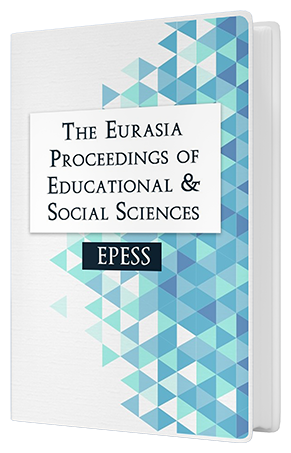Pleasure Reading: The Gains of Student Teachers of English Obtained from a Reading Journey
DOI:
https://doi.org/10.55549/epess.1221495Keywords:
Reading, Pleasure Reading, Literature, English Language TeachingAbstract
It is an undeniable fact that reading books is beneficial in many ways. However, a great number of potential benefits are likely to be observed when these readings are realized primarily for pleasure. This article reveals some of these benefits which were identified through a qualitative case study conducted with the voluntary participation of 37 pre-service English language teachers studying at a state university in Türkiye. The study aimed to investigate the pre-service teachers' language- and culture-related gains as well as the gains regarding personal growth from a pleasure reading experience. Qualitative data were collected through written reports that students filled out after reading the books they chose based on their individual preferences. The content analysis of the reported answers revealed that pleasure reading was most beneficial for vocabulary development regarding students' language-related gains. On the other hand, they stated that their biggest culture-related gain was obtaining the ability to understand people living in a specific time period. The students also noted that the most significant contribution of their reading experience to their personal growth was to give them a new perspective.Downloads
Published
Issue
Section
License
Copyright (c) 2022 The Eurasia Proceedings of Educational and Social Sciences

This work is licensed under a Creative Commons Attribution-NonCommercial-ShareAlike 4.0 International License.
The articles may be used for research, teaching, and private study purposes. Any substantial or systematic reproduction, redistribution, reselling, loan, sub-licensing, systematic supply, or distribution in any form to anyone is expressly forbidden. Authors alone are responsible for the contents of their articles. The journal owns the copyright of the articles. The publisher shall not be liable for any loss, actions, claims, proceedings, demand, or costs or damages whatsoever or howsoever caused arising directly or indirectly in connection with or arising out of the use of the research material. All authors are requested to disclose any actual or potential conflict of interest including any financial, personal or other relationships with other people or organizations regarding the submitted work.




